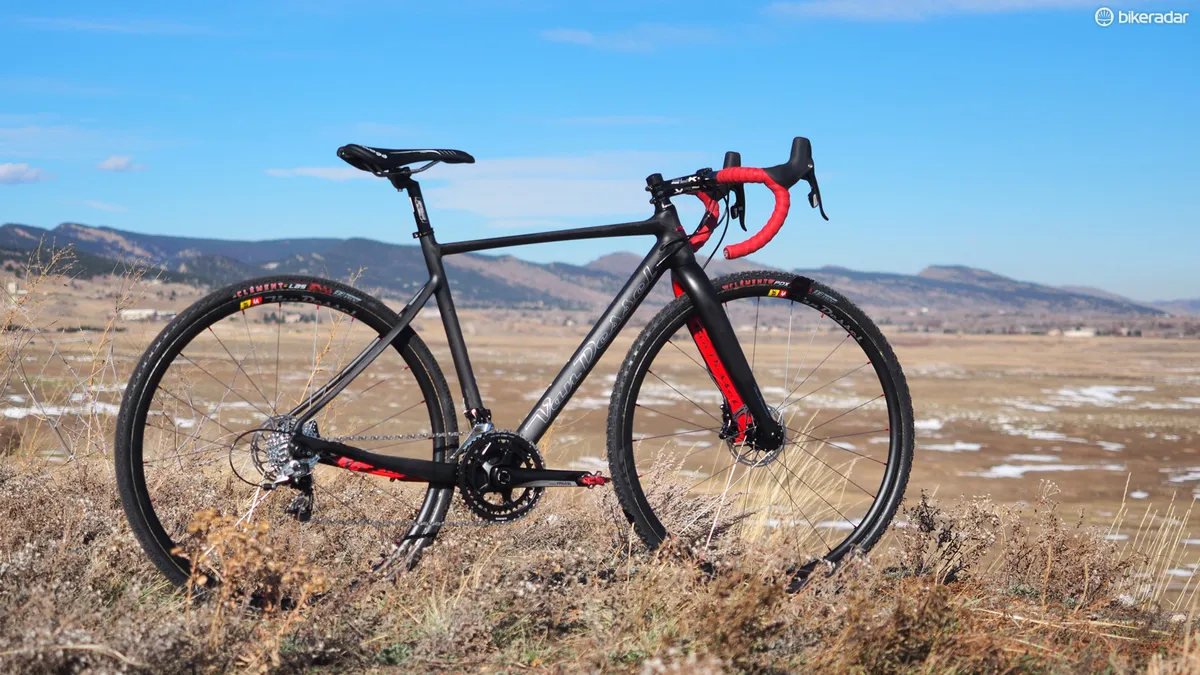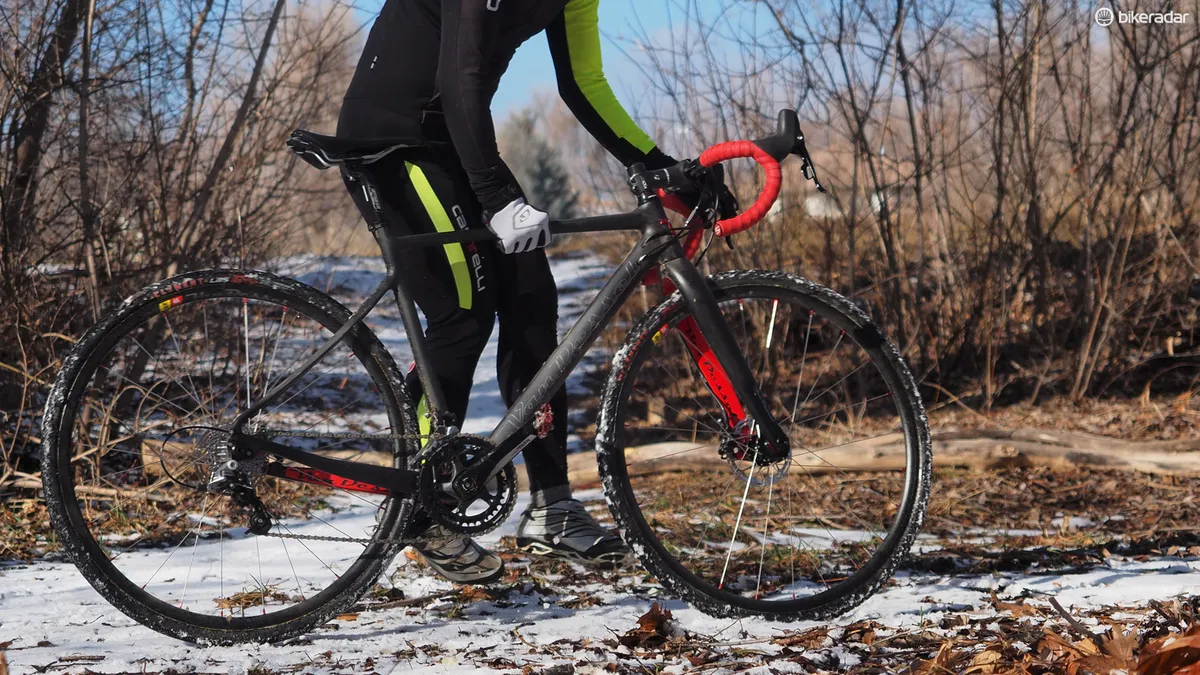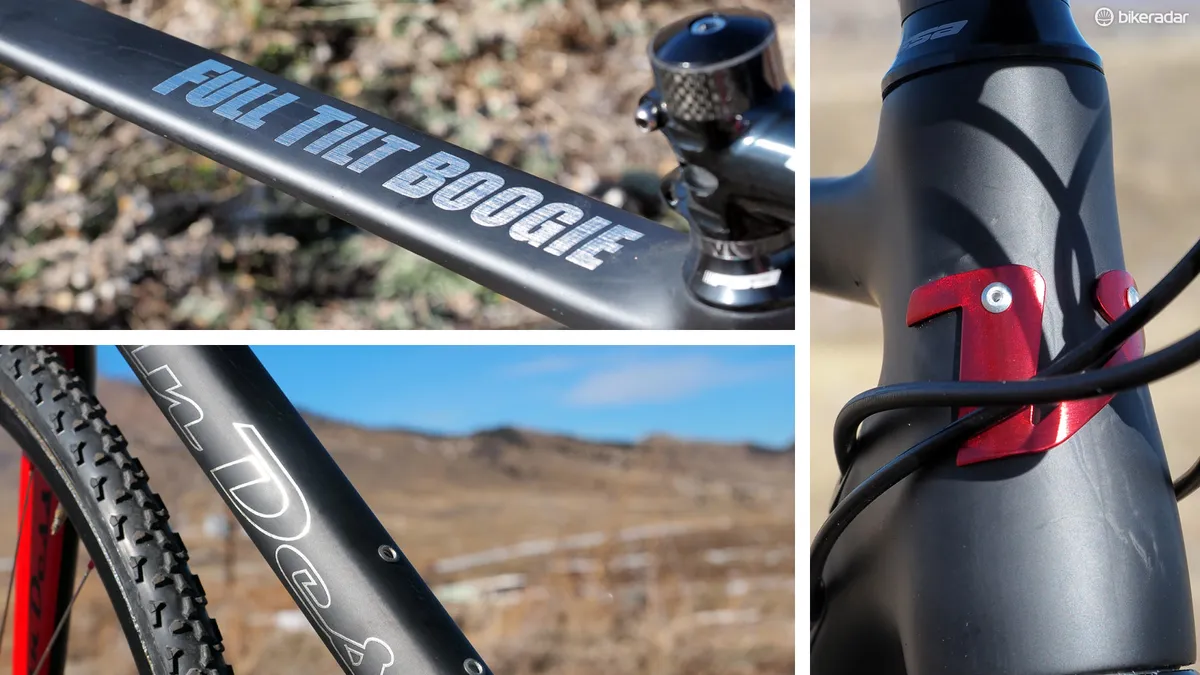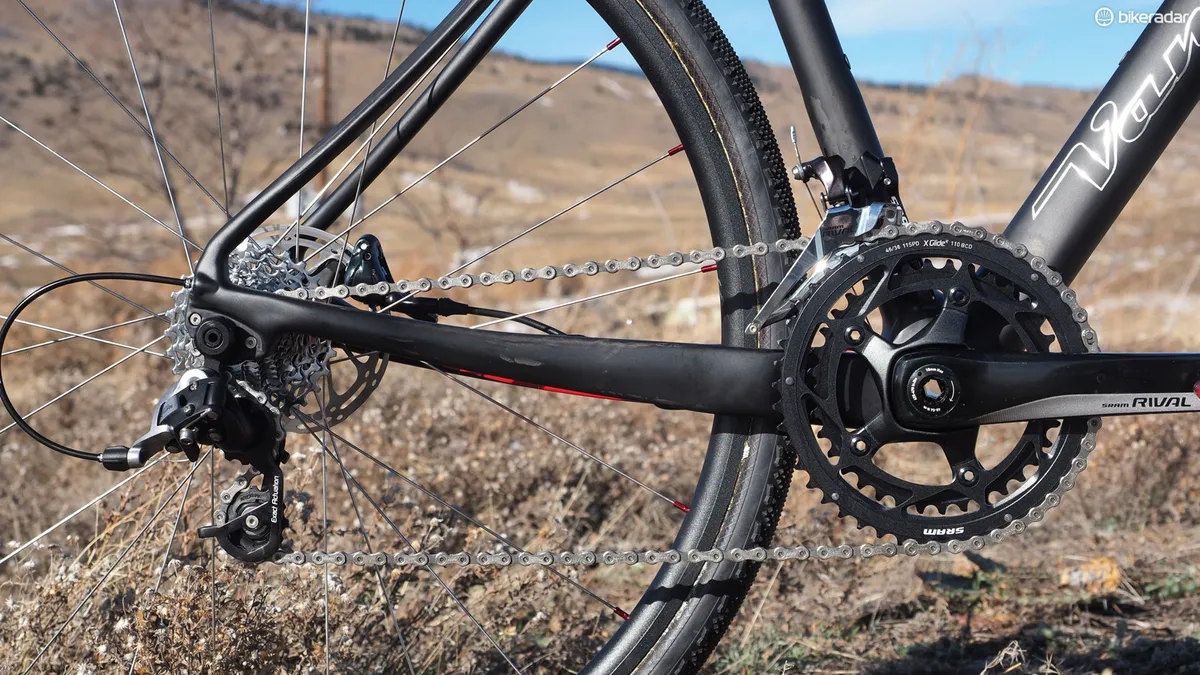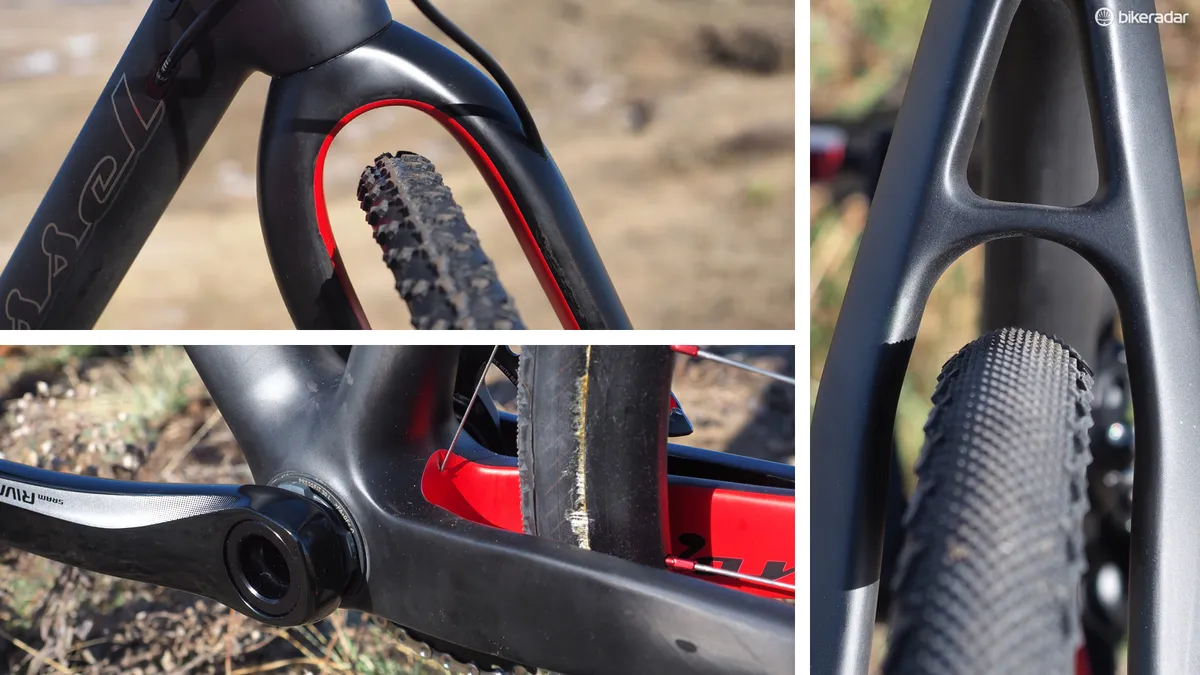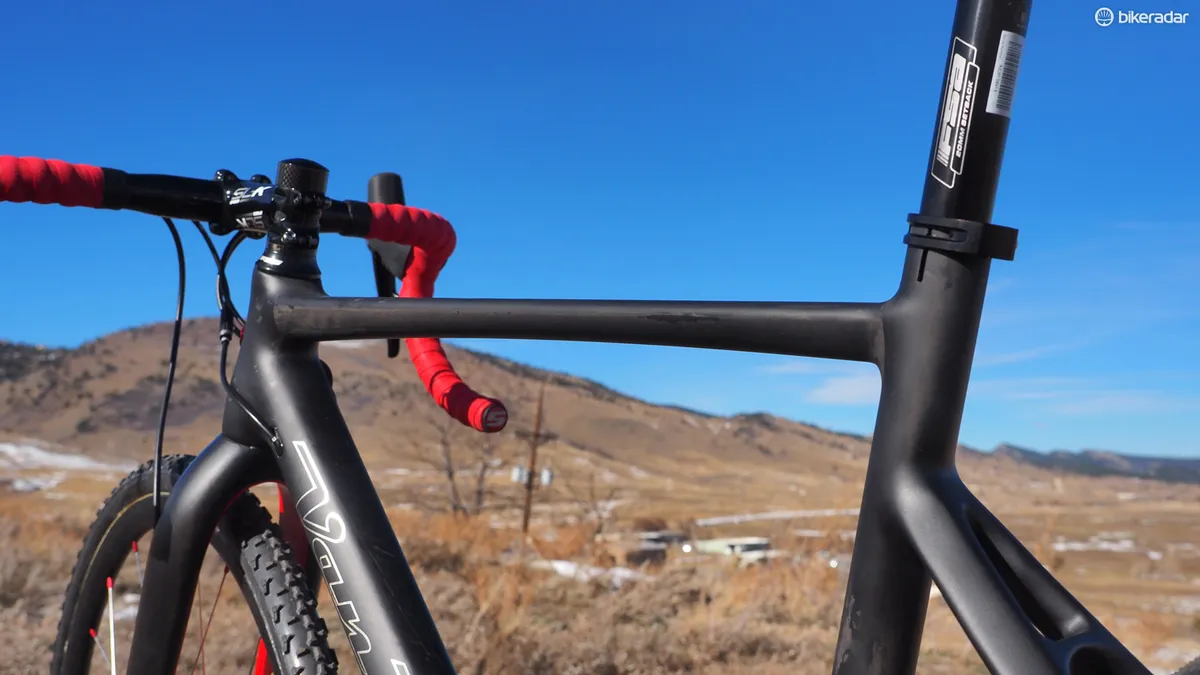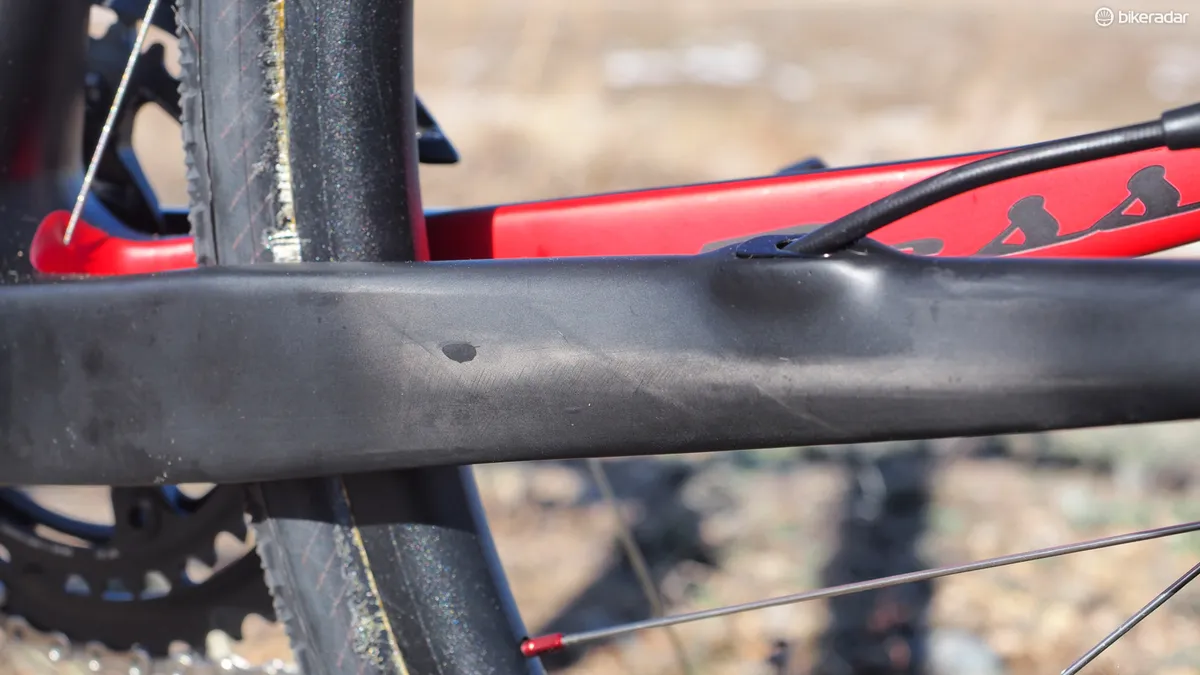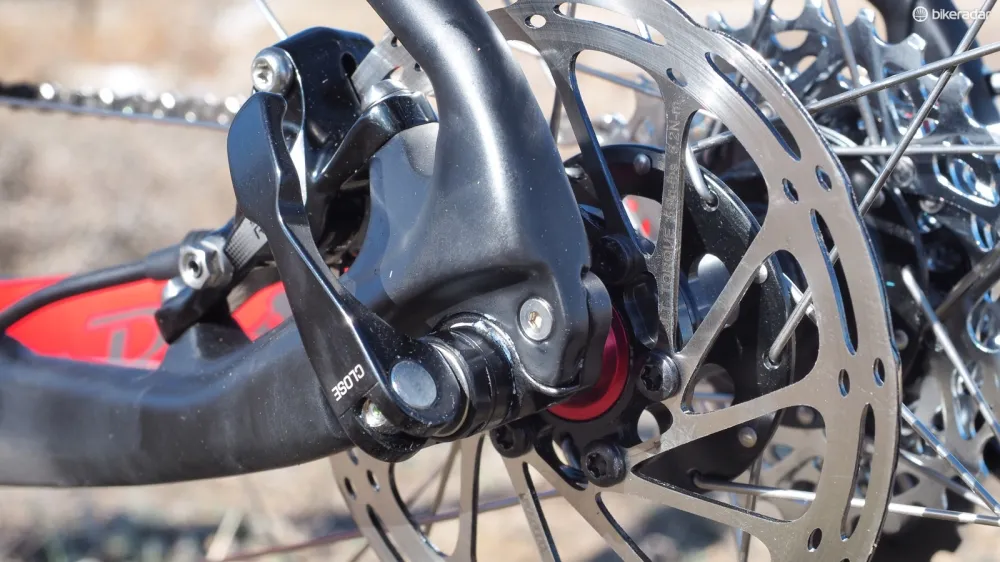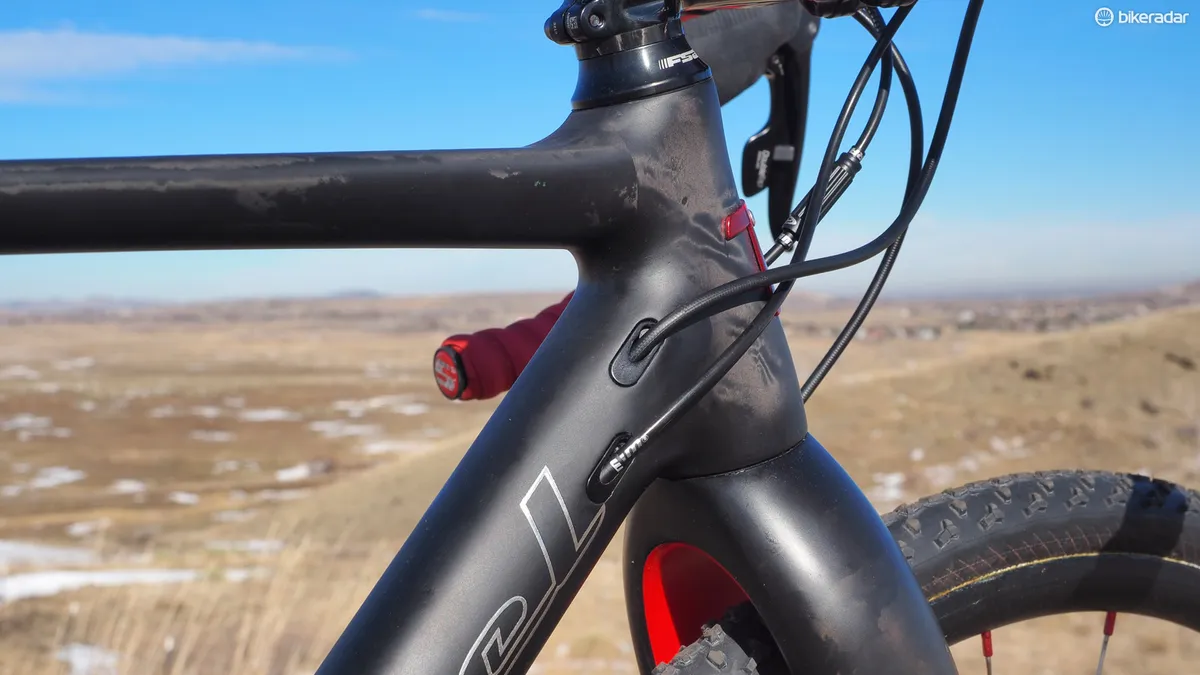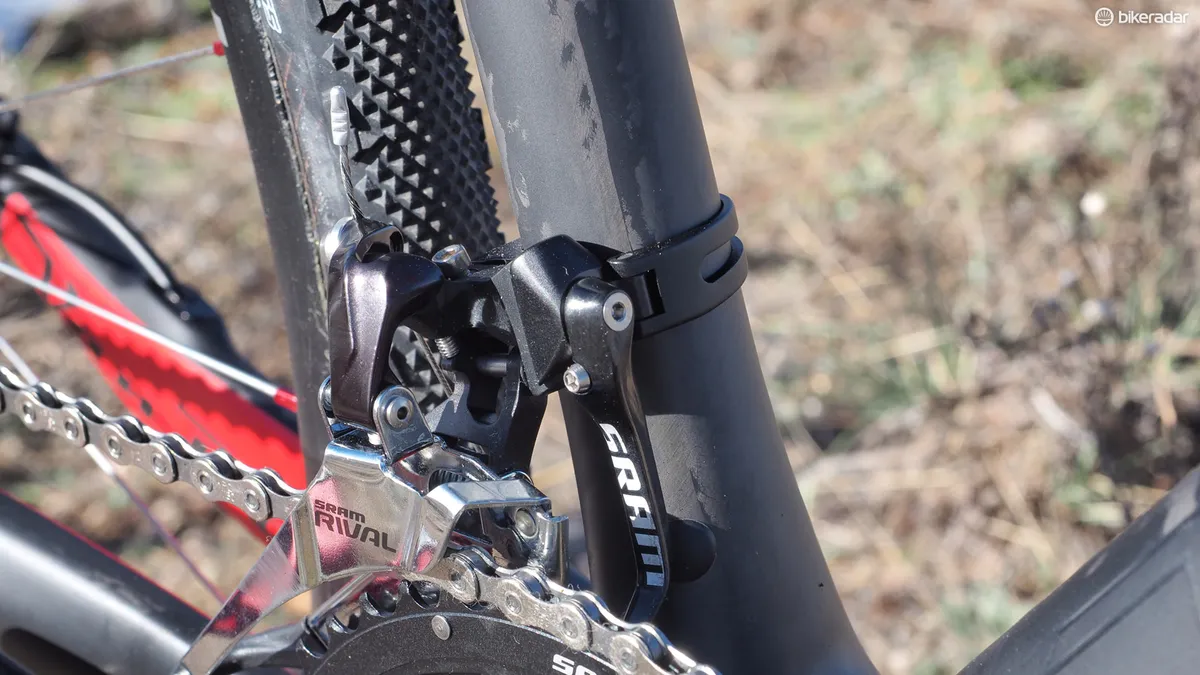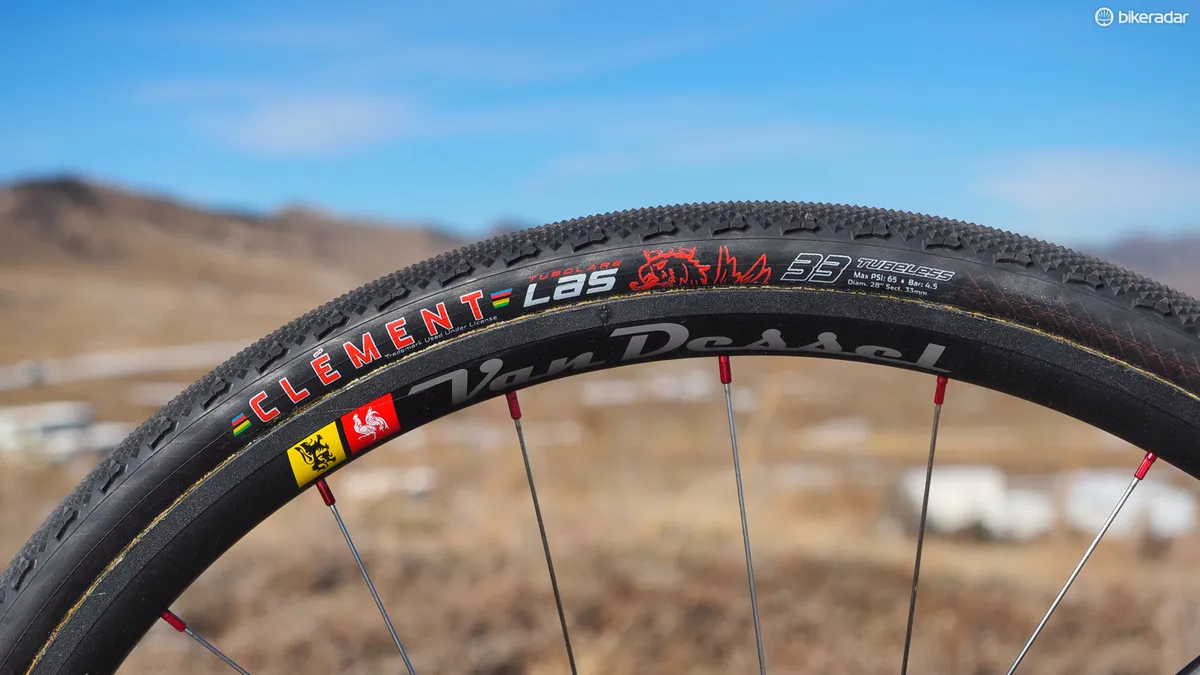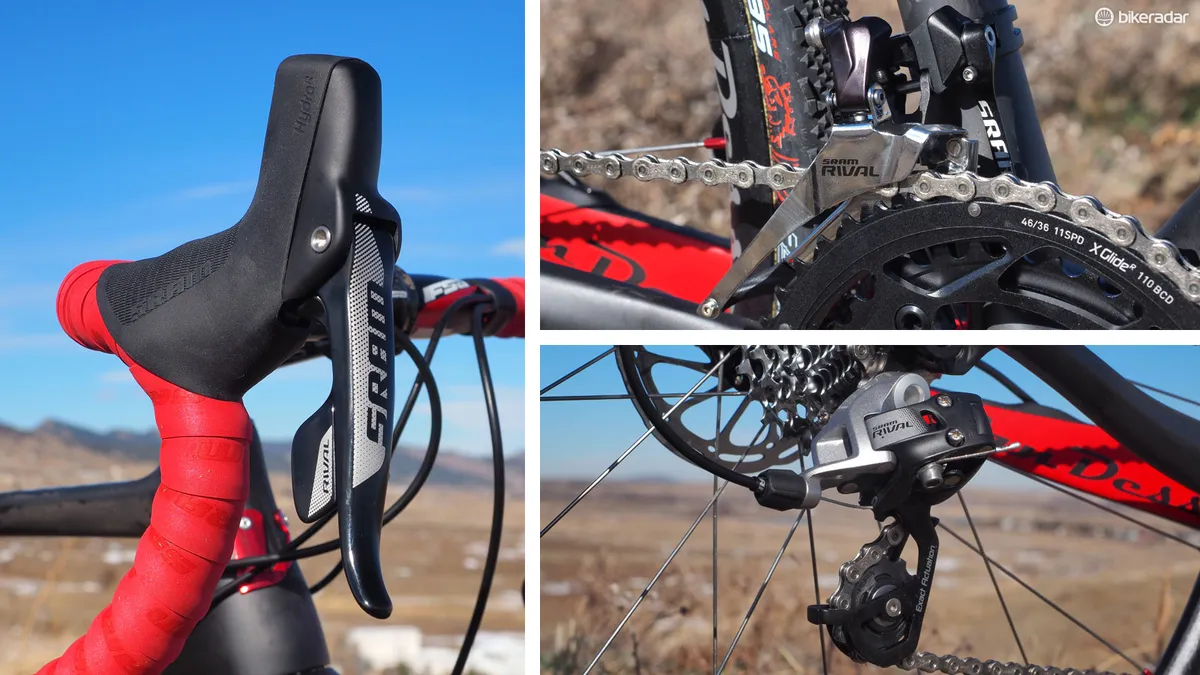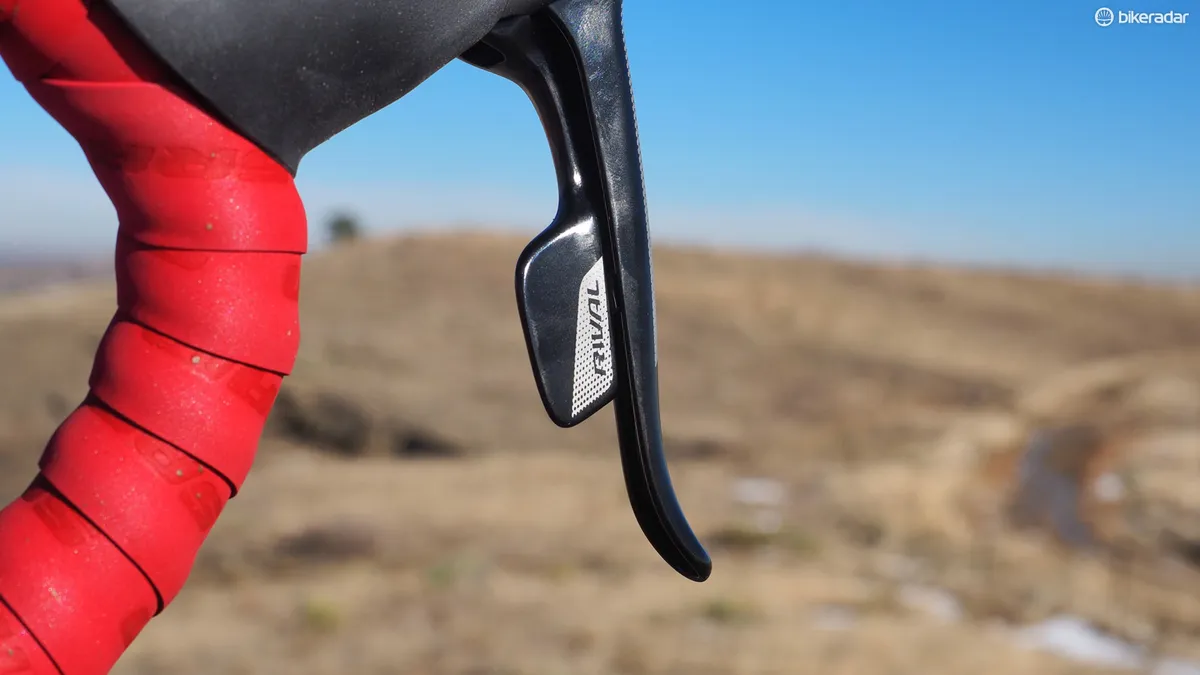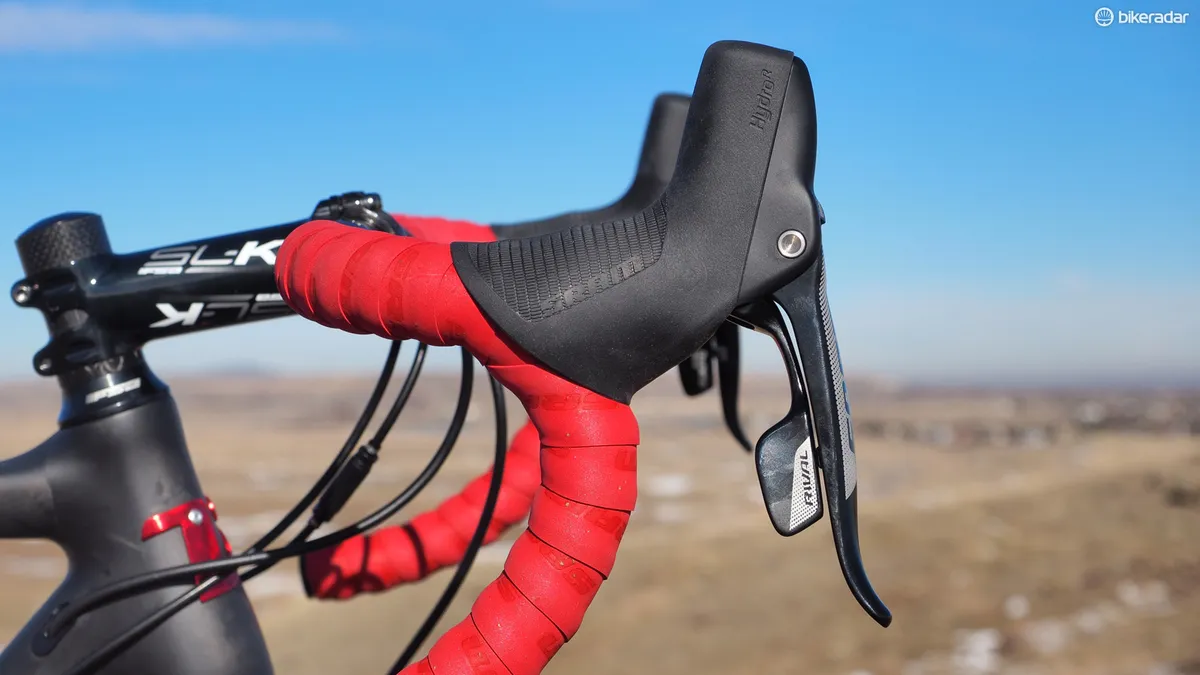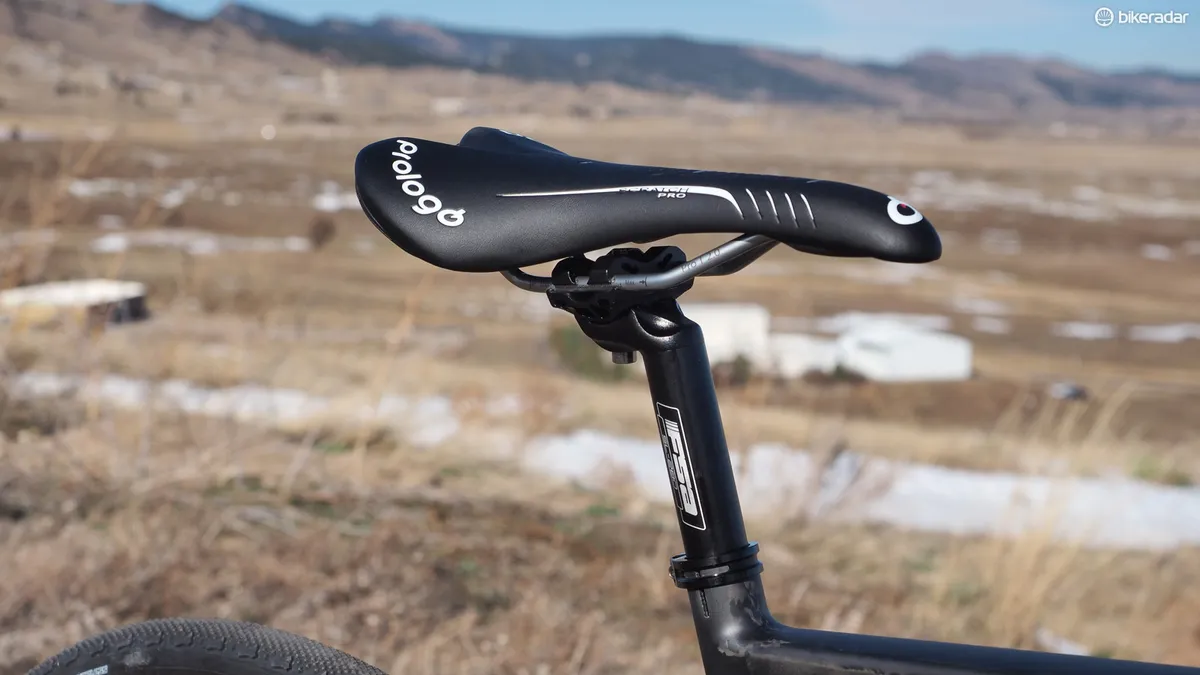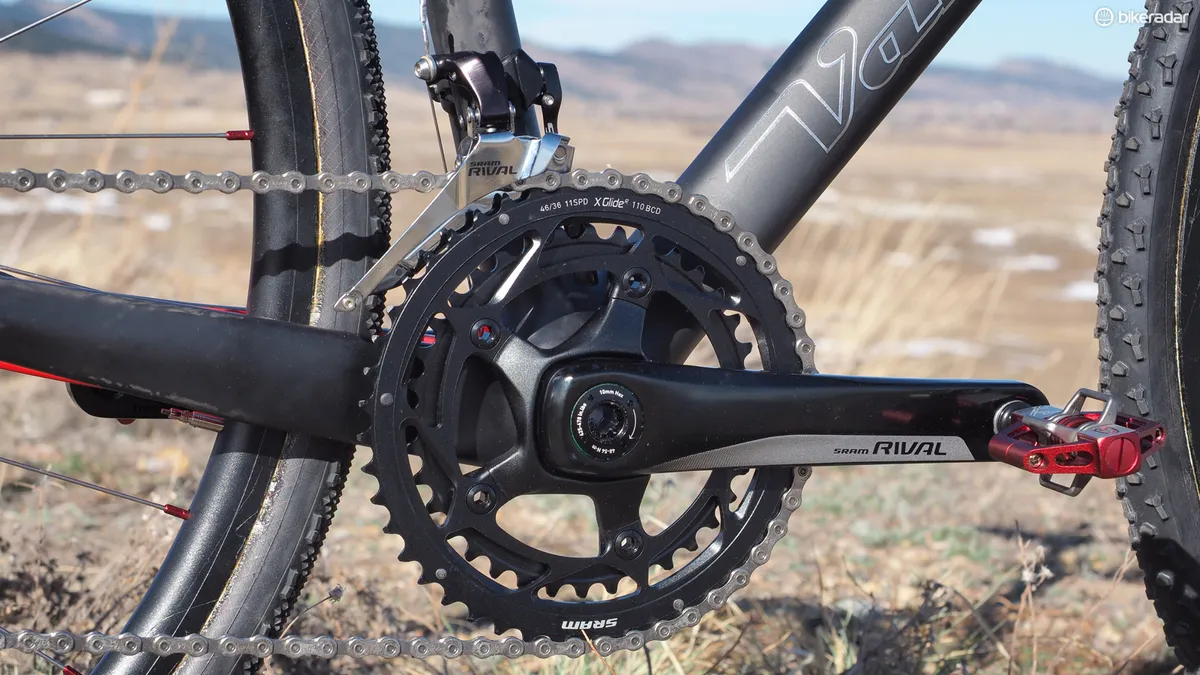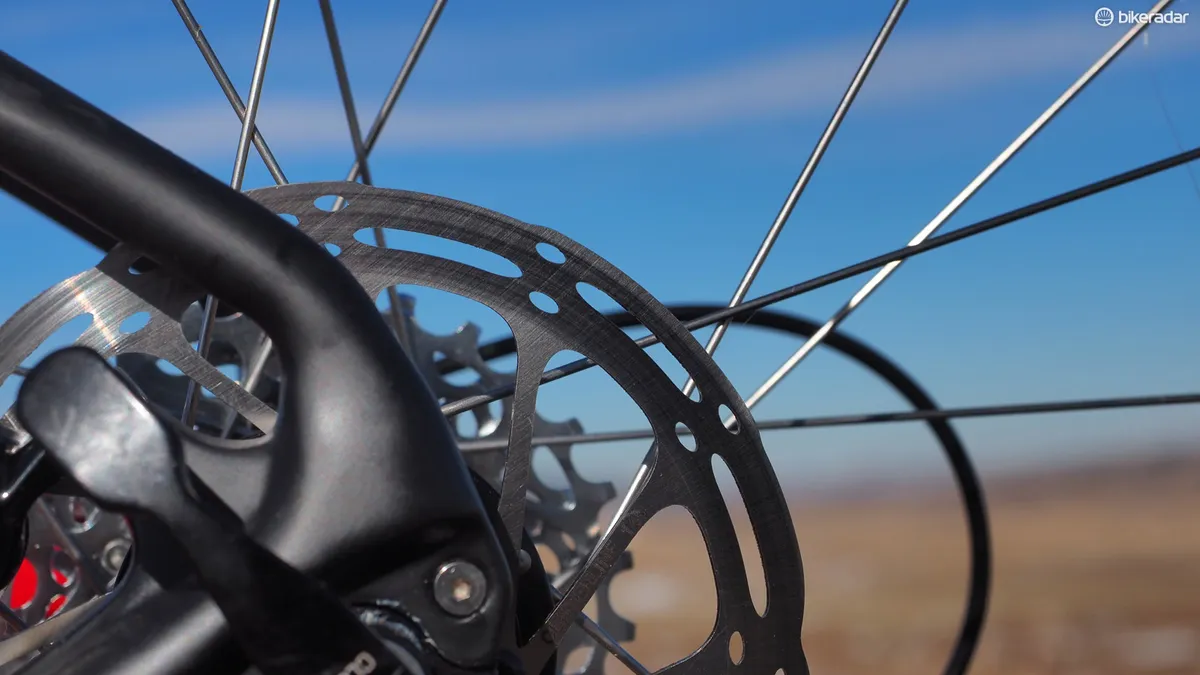Van Dessel revamped its flagship Full Tilt Boogie 'cross racer for this season, baking in front and rear thru-axles, front and rear disc brakes, internal cable routing and a sleek new modular monocoque carbon frame. Carrying over are its low-slung geometry, stiff chassis, and low weight, which should help generate as big a cult following for FTB v2.0 as the original.
As much as we were impressed with the Full Tilt Boogie's feature set and general performance, though, we couldn't also help but be a little concerned over some build quality and detail issues.
- Highs: Lightweight chassis, front and rear thru-axles, front and rear disc brakes, precise handling, good ride quality
- Lows: Questionable build quality, clumsy-feeling skewers, awkward rear brake hose routing, poor BB fit
Ride and handling: precise front end and great geometry
While some 'cross bikes are best piloted with a more balanced approach, the new Van Dessel Full Tilt Boogie has retained the previous version's hard-charging, forward-centric personality with a notably stiff front end that's joined to a somewhat softer rear. Augmented with eye-catchingly bulbous fork blades, thru-axle dropouts and a tapered steerer tube, our test machine had a tangibly direct feel from the bars through to the front wheel – begging us to drive the bike hard into sketchy corners, with little fear of being bounced off line and plenty of confidence that the rear end would faithfully follow suit.
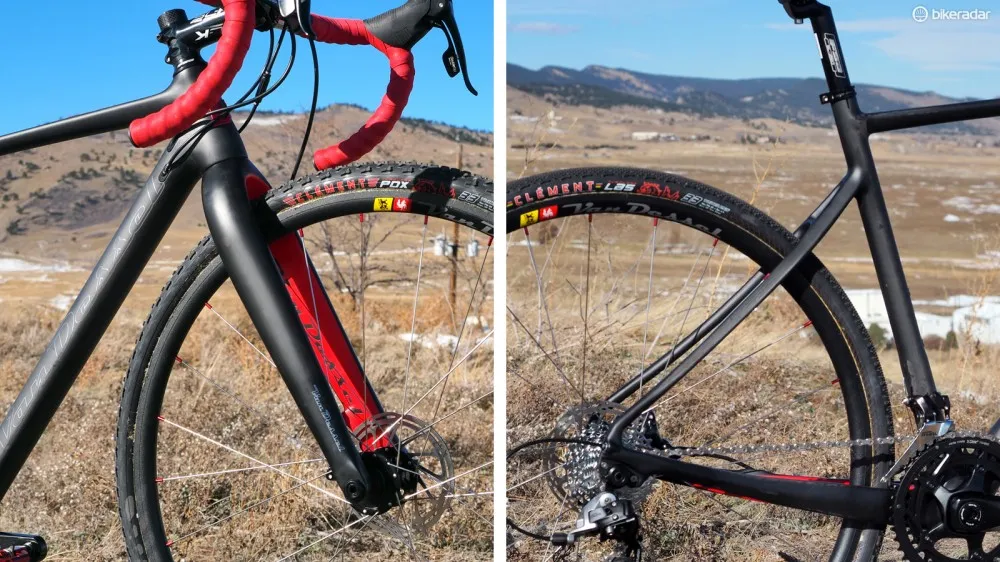
Whereas the front end of the Full Tilt Boogie is noticeably stout, the rear end is softer
Further bolstering the bike's handling characteristics is an evolution of Van Dessel's proven geometry. Although the bottom bracket has risen up 5mm this year, it's still quite low and, coupled with the slack front end, we found the Full Tilt Boogie is quite happy to stably drift both wheels through a slippery corner.
Fear not that the stiff front end yields a brutally rigid ride, either. Aft of the steerer tube, Van Dessel has seemingly built quite a bit of give into the frame with a relatively spindly top tube and gracefully curved seatstays. That softness admittedly doesn't yield the most blistering responsiveness when you apply the power but in fairness, we've oftentimes found softer frames to be faster when it comes to 'cross – particularly on the roughest courses.
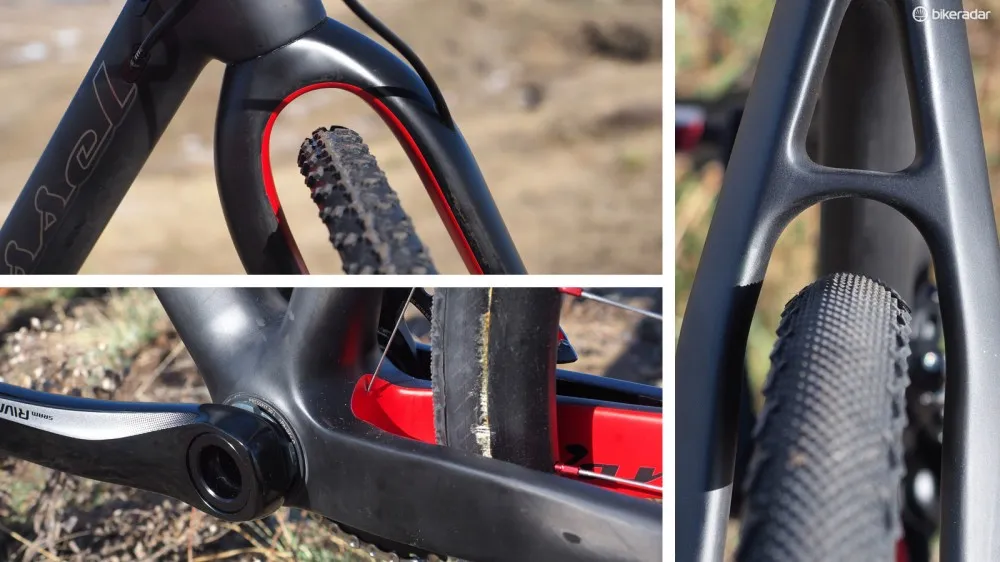
Mud clearance is excellent all around
Van Dessel has done a pretty good job with the 'cross-specific details, too. The top tube is only moderately sloping so as to leave plenty of room in the front triangle for shouldering, the internally routed cables leave smooth surfaces to grab, and no errant cables or housing stops to snag your clothing, and mud clearance is excellent all around with no shelf behind the bottom bracket on which grime can accumulate.
Frame: good design, so-so execution
The old Full Tilt Boogie was decidedly long in the tooth by the time it was retired, so it's good to see the lengths that Van Dessel has taken to bring this new version up to speed. While the forks are supplied specifically with quick-release or thru-axle dropouts, the rear dropouts feature interchangeable alloy plates that quickly swap between 135mm and 142mm spacing – or perhaps others as they're introduced later, which reassuringly makes the FTB somewhat futureproof.
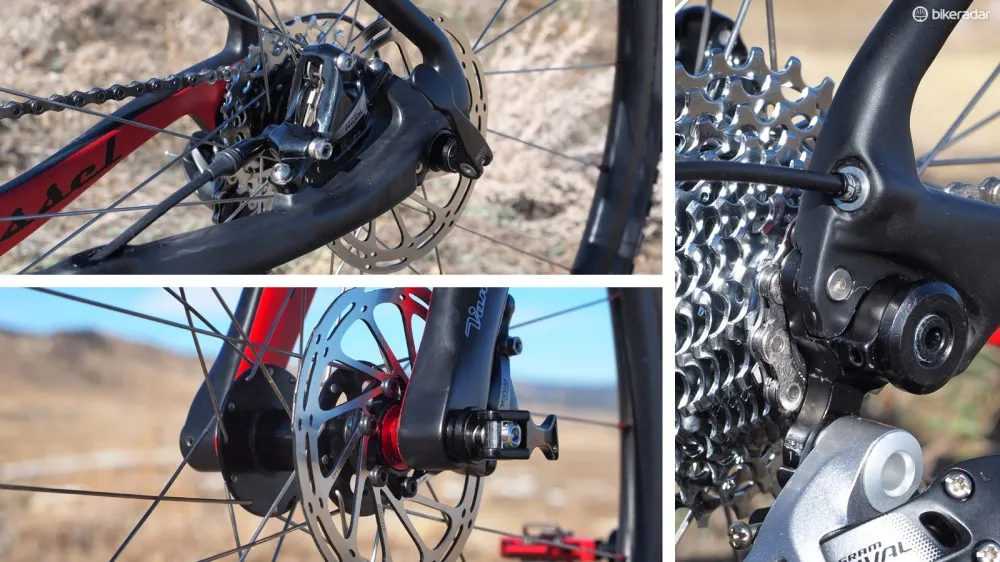
Forks are supplied with dedicated quick-release or thru-axle tips but the rear dropouts are easily interchangeable
The internal cable routing can also be configured for various drivetrain setups, and with a clamp-on front derailleur, racers who prefer 1x transmissions won't have to balk over vestigial braze-on stubs, either. We were happy to see Van Dessel finally add a proper pair of water bottle mounts, too – a convenience that was sorely missed on the previous model.
Actual weights are pretty impressive, too, with our 52cm frame coming in at just 1,002g (including the seatpost collar, rear derailleur hanger, and cable hardware) and the fork adding another 489g.
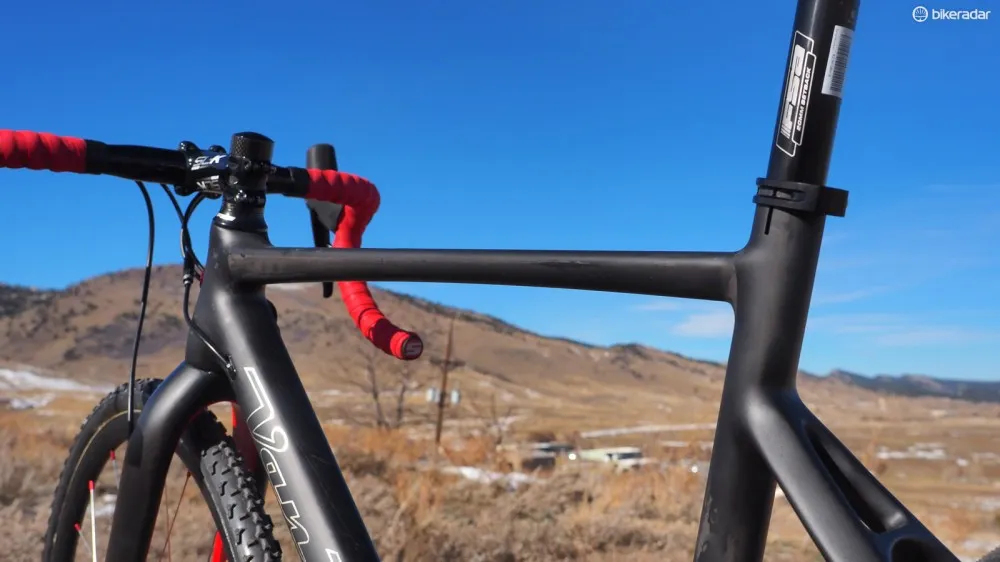
The top tube is only moderately sloping to lend more standover clearance while still leaving plenty of room for shouldering
With such great performance characteristics and what appears to be good design then, it's doubly disappointing that we found so many niggling issues with our early-production frameset that, at best, suggest a rush to market.
The inside of the frame is rife with rough edges (a typical characteristic of older bladder-formed construction techniques), there's more filler and glue applied than we'd like, the thru-axle fittings are crudely finished, and the thru-axles themselves feel cheap and are somewhat clumsy to operate.
More troubling was the sloppy fit of the press-fit bottom bracket shell. Our cups pressed in more loosely than we'd like (which doesn't bode well for creaking down the road), and without any internal chamfering on the edges, we couldn't get them fully seated, either. You'd best make sure to route the rear brake hose through the frame before installing those cups, too, as there's otherwise no means of snaking it through the bottom bracket shell and chainstay – and even then, there isn't enough room in there for both without squishing the bottom bracket's plastic sleeve.
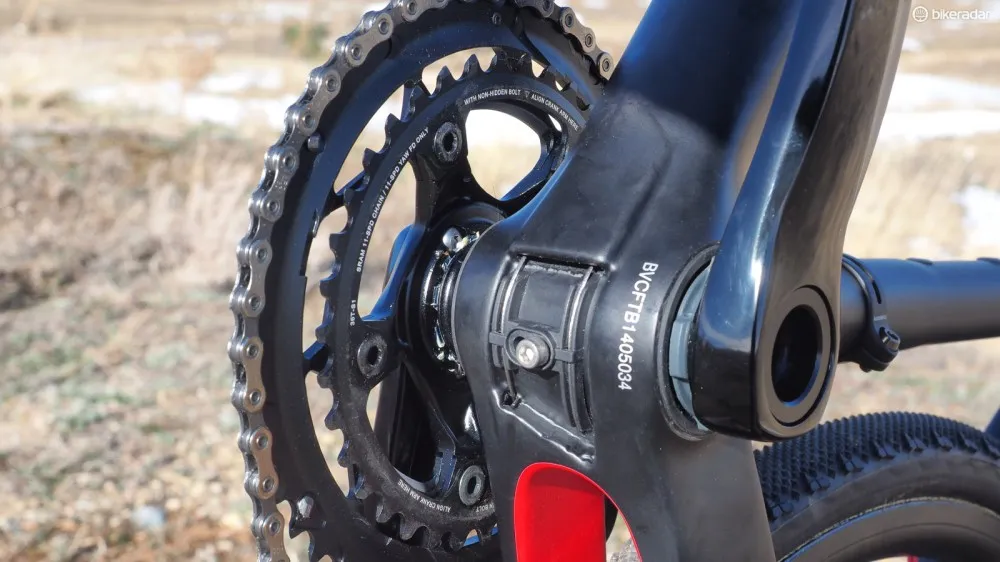
We were wholly unsatisfied with how well the bottom bracket cups pressed into the frame
"[It's] generation one [but we're] getting very well dialed in, though," company principal Edwin Bull told BikeRadar when we put our concerns to him. "It's always a work in progress, but really appreciate your candid feedback."
Equipment: excellent workhorse SRAM Rival 22 HRD group, solid house-brand wheels
Van Dessel offers the Full Tilt Boogie as a bare frameset or in a wide range of complete options. While that list includes plenty of high-zoot choices, we elected to follow the privateer route with a more budget-friendly SRAM Rival 22 HRD group, well proven alloy FSA cockpit components and Van Dessel's own house-brand tubular wheelset. Total price as tested was US$4,329 (£2,857 / AU$5,277 at time of writing).
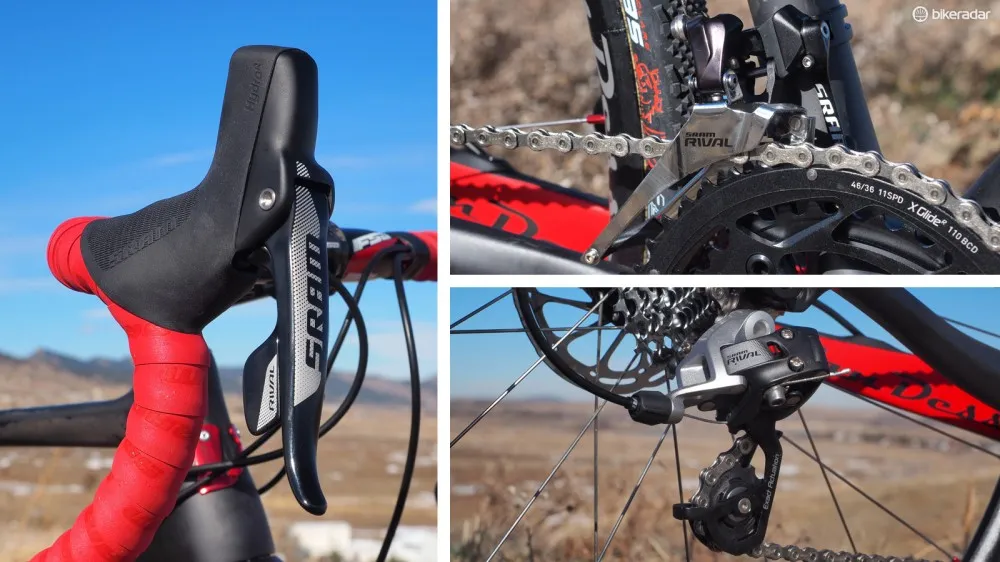
SRAM's Rival 22 HRD is easily the best value for a fully hydraulic disc brake road group
Although Rival 22 HRD is predictably heavier than its more premium Force 22 HRD and Red 22 HRD cousins, you wouldn't know it when you're in the saddle. Shift performance is indistinguishable with the same staccato DoubleTap shift lever action and feel, plus the same reliably precise chain movement and adjustable ergonomics you get on the more expensive groups. The hydraulic disc brakes are also similarly powerful and chock-full of fingertip control that lets you flirt effortlessly on the edge of lock-up – albeit with the same somewhat vague lever feel and non-adjustable lever throw, too.
If there's one area that disappoints on the Rival 22 HRD group, it's the solid-forged alloy crankset. Even in BB30 guise with an alloy spindle, it's a boat anchor at a whopping 840g with 'cross-specific 46/36T chainrings but without the bottom bracket. If you're going to upgrade anything, this should be it.
There's little need to look further upscale than Van Dessel's house-brand aluminum tubular wheelset, however, which we found to be impressively light, admirably durable, and refreshingly understated with simple smoke, red, and yellow graphics. Carbon rims would be lighter, yes, but the real performance gain here is in the tubulars that are glued on here. Van Dessel has wisely opted for Clement's 'tubeless tubulars' too, which are still quite supple for good grip but are more easily sealed and repaired than traditional tubulars. Bonus points go to the unusually fast-engaging rear hub internals, which we found to be especially useful on slippery uphill pitches.
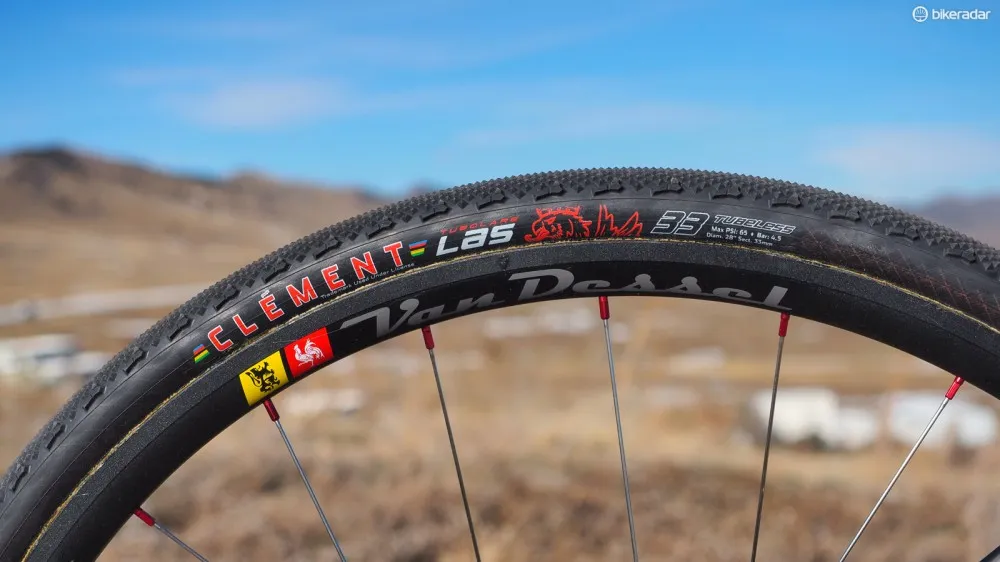
We're happy to see that Van Dessel offers an alloy tubular wheel option. For 'cross, it's more important to run sew-ups than it is to have carbon rims
Despite the value-first price point, our complete Van Dessel Full Tilt Boogie came in at just 7.85kg (17.3lb) without pedals. That's a paltry 100g (0.22lb) heavier than the slightly larger (but more expensive) Force-equipped bike we tested a few years ago, while benefiting from the added control and precision of thru-axles and disc brakes – the very definition of progress if we do say so ourselves.
Here's to hoping that that progress continues with later production runs, as Bull promises. While there's good value in the bike we've tested here, the asking price still isn't exactly pocket change – and these days, even average carbon frame construction has advanced to the point where we expect better.
For more information: www.vandesselsports.com
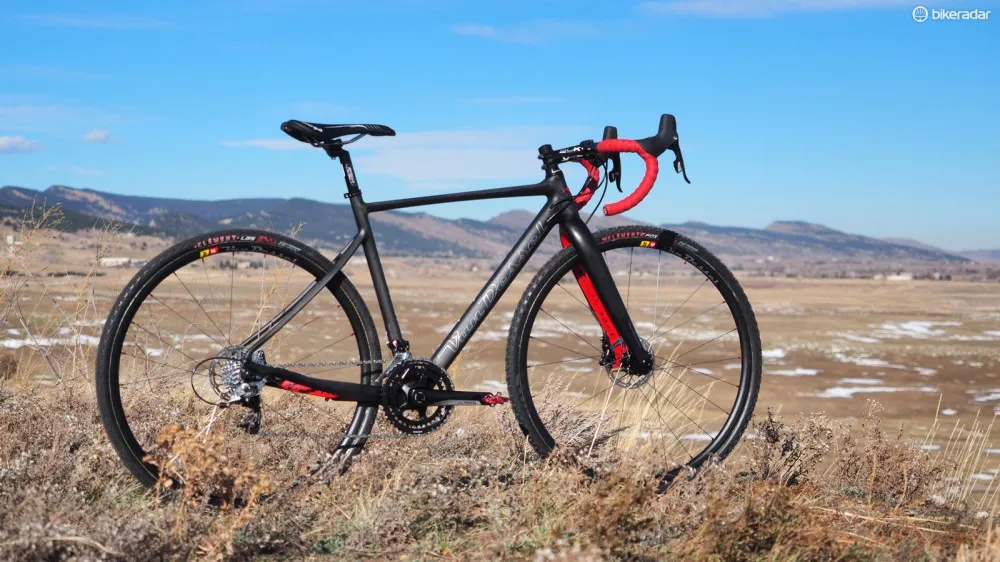
Complete bike specifications
- Frame: Van Dessel Full Tilt Boogie
- Fork: Van Dessel Full Tilt Boogie thru-axle
- Headset: FSA Orbit IS tapered
- Stem: FSA SL-K
- Handlebar: FSA Energy New Ergo
- Tape: Van Dessel cork
- Front brake: SRAM Rival 22 HRD
- Rear brake: SRAM Rival 22 HRD
- Brake levers: SRAM Rival 22 HRD DoubleTap
- Front derailleur: SRAM Rival 22
- Rear derailleur: SRAM Rival 22
- Shift levers: SRAM Rival 22 HRD DoubleTap
- Cassette: SRAM PG-1130, 11-28T
- Chain: SRAM PC-1130
- Crankset: SRAM Rival 22, 46/36T
- Bottom bracket: SRAM PF30
- Pedals: n/a
- Wheelset: Van Dessel disc tubular
- Front tire: Clement PDX tubular, 33mm
- Rear tire: Clement LAS tubular, 33mm
- Saddle: Prologo Scratch Pro
- Seatpost: FSA SL-280
